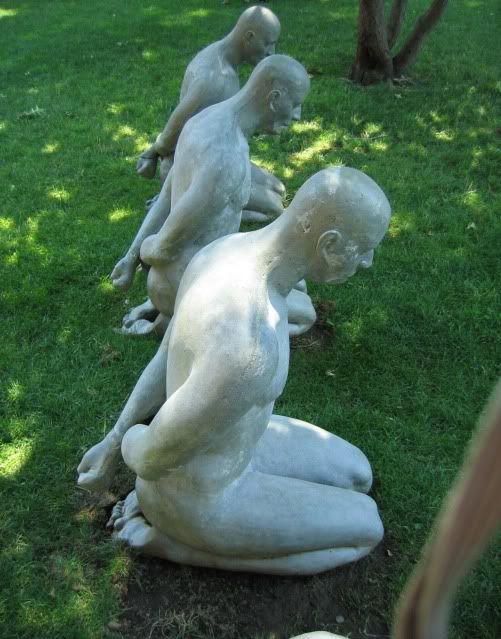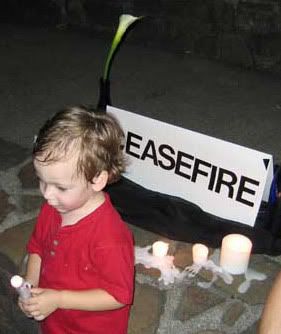
This is an article about honesty . . . and honestly, I have a love/hate relationship with God. I've been on the up and down roller coaster of belief and doubt, righteousness and debauchery, faithfulness and apostasy. I know that's disturbing to a lot of people, but God gets that completely . . . gets me completely. Gets you completely too.
Let me be the first to admit that I don't have many answers, especially when it comes to God. Honestly, the ministry of Committed to Freedom began because of my own spiritual search for answers to questions that really have no good answers. The dilemma for anyone who has experienced trauma or suffering is to have co-existing contradictions. God is love. Suffering is real. God has the capacity to create. Trauma has the capacity to destroy. The idea of God being powerful and one who intervenes in the circumstances of our lives held up in contrast to unanswered prayer, vulnerable people being abused and exploited, or diseases that progress, ravage, and destroy. Like I said: love/hate.
It may feel completely terrifying to even acknowledge this love/hate relationship with God. It may feel as if you're in mortal danger of losing your soul, of losing your place in God's kingdom, or of falling into deception. But, like every other aspect of life, to pretend these concerns are not important to you, that these questions do not gnaw away at the edges of your soul - is to lie. The fact is, if these contradictions are rattling around in your heart and mind - they're there! God already knows that - it's not like you're going to take God by surprise when you finally explode into a spiritual meltdown because you haven't been honest about your struggles.
I recognize that people from a variety of doctrines and belief systems read this. It is with a great deal of caution and sense of responsibility that I write about such topics as abuse, and certainly about God's role in abuse recovery. I'm sure that up until the day i die, I will still have many more questions than answers, but I want to share a few of my thoughts about the spiritual journey - the quest that you and I are on to help you grapple with these difficult issues. Here is what I know:
1. God is patient, God is love, and God is aware. Keep in mind what Jesus, himself, screamed on the cross when faced with overwhelming betrayal and suffering. In essence he said, "Hey! Where are you? I'm suffering and I can't find you!" Your issues don't take God by surprise. They may take you and everyone else by surprise. They might make everyone around you very uncomfortable, even alarmed - but take a breath. God knows the difference between a seeker and a cynic.
2. God encourages your honesty. You may have to hold back with your pastor, your family, your friends, and maybe even with yourself - but not with God. God's not up in heaven, peering over a cloud with a giant mallet playing "Whack-a-mole" every time you raise troubling issues or questions. Jesus invited people to "Come to him" for any reason, any time (Matthew 11:27-30). Again, your gut-wrenching spiritual howls won't rattle God one bit. They may freak everybody else out (including you!), but God knows the struggle. God knows the path. God knows the truth. God knows the reasons.
3. God is neither a puppet master nor a magician. You aren't under God's control, nor is anyone else. God doesn't pull your strings. Instead, he beckons you to dwell in peace, connect in quiet awe, and wait for illumination. By the way - this is a two way thing. God wants to dwell in peace with you, too. God wants to connect in quiet awe of you, too. God wants to wait with you. The other part of this is that God does not function at the behest of "abra-ka-dabra" prayer. I don't completely understand this. It is a cosmic mystery that unfolds as life goes on, but God's function is not as our personal magician or Santa Claus. This may be the major sticking point that you may have with God. Your expectations are often missing the point of God's role and function in your life. I still haven't formulate all of my ideas on this one - it's still a matter of great meditation and study for me, but the longer I live, the more I realize that my ideas about God are limited, flawed, strained, and obstructed.
So, yes - I love God and yes – I’m very, very upset with God. Yes, I have faith and yes, I doubt. Yes, I follow a moral and ethical code that complies with those of the Bible and yes, I teeter on the brink of unrighteousness. I am a glorious contradiction - just like you!
What makes you so glorious - you must understand - is the fact that you ARE on this roller coaster, you ARE in a tug-of-war with God, and you ARE a seeker and not a cynic. So uncross those arms, take a breath, ask hard questions, and seek, seek, seek. According to Christ, it is only the seekers who find. Only those who make some noise that find their way in. Only those who demand answers that get them. Of course that's my paraphrase with an edge. Jesus put it this way: "Ask and it will be given to you; seek and you will find; knock and the door will be opened to you. For everyone who asks receives; he who seeks finds; and to him who knocks, the door will be opened" (Matthew 7:7-8).
I don't know how. I don't know why. I don't know when. I DO know there is an insatiable drive within me TO know. Perhaps there is in you too. So ASK, SEEK, and KNOCK. Then pay attention to what unfolds . . . and be patient, grasshopper!
From Sallie:Can you imagine the terror of being abused? Of course, many of you can.
Now, can you imagine that same terror if you're mentally retarded or physically disabled?
I'm developing a new seminar for abuse survivors with these particular challenges. I'm also developing one for helping professionals that work with them.
Would you like to help fund this kind of research and development? If so, please click here: http://www.committedtofreedom.org/donate.html
I'm in the midst putting on the finishing touches for these seminars. We really need you to be a financial partner to help make this happen. We also need your continued support to develop many more types of seminars and resources!


























